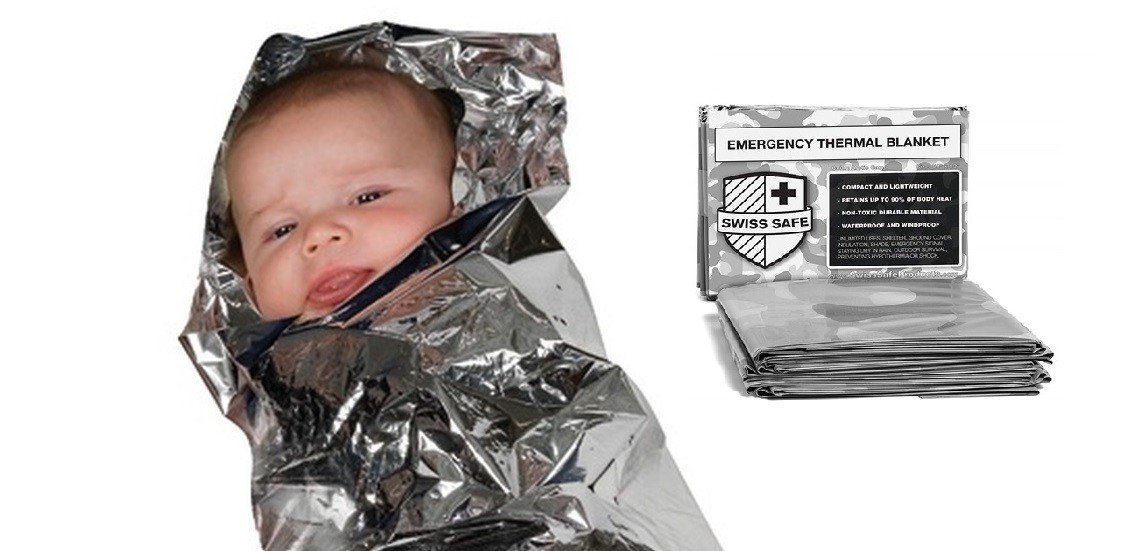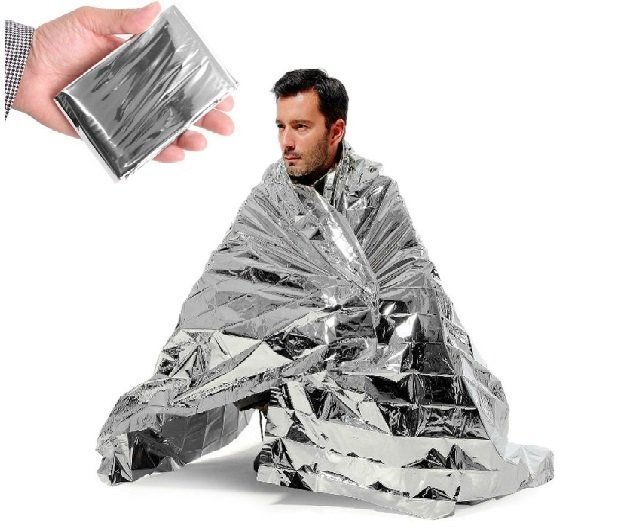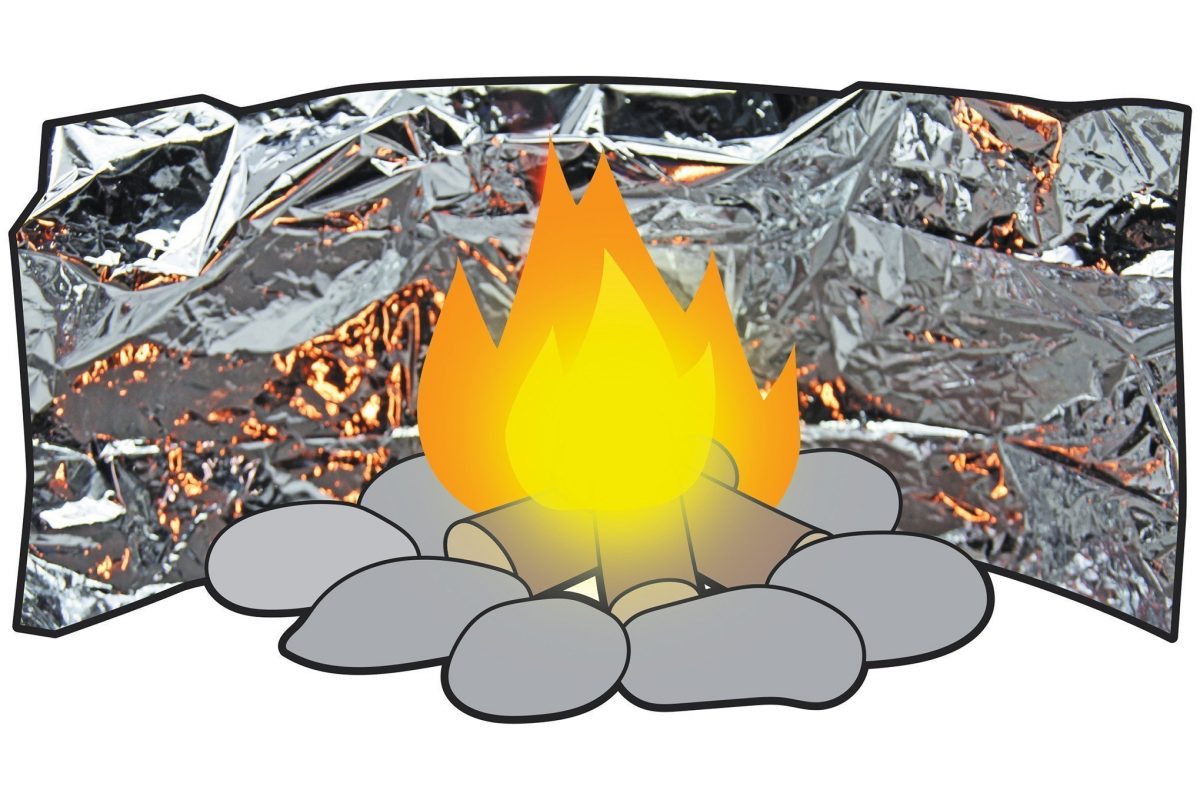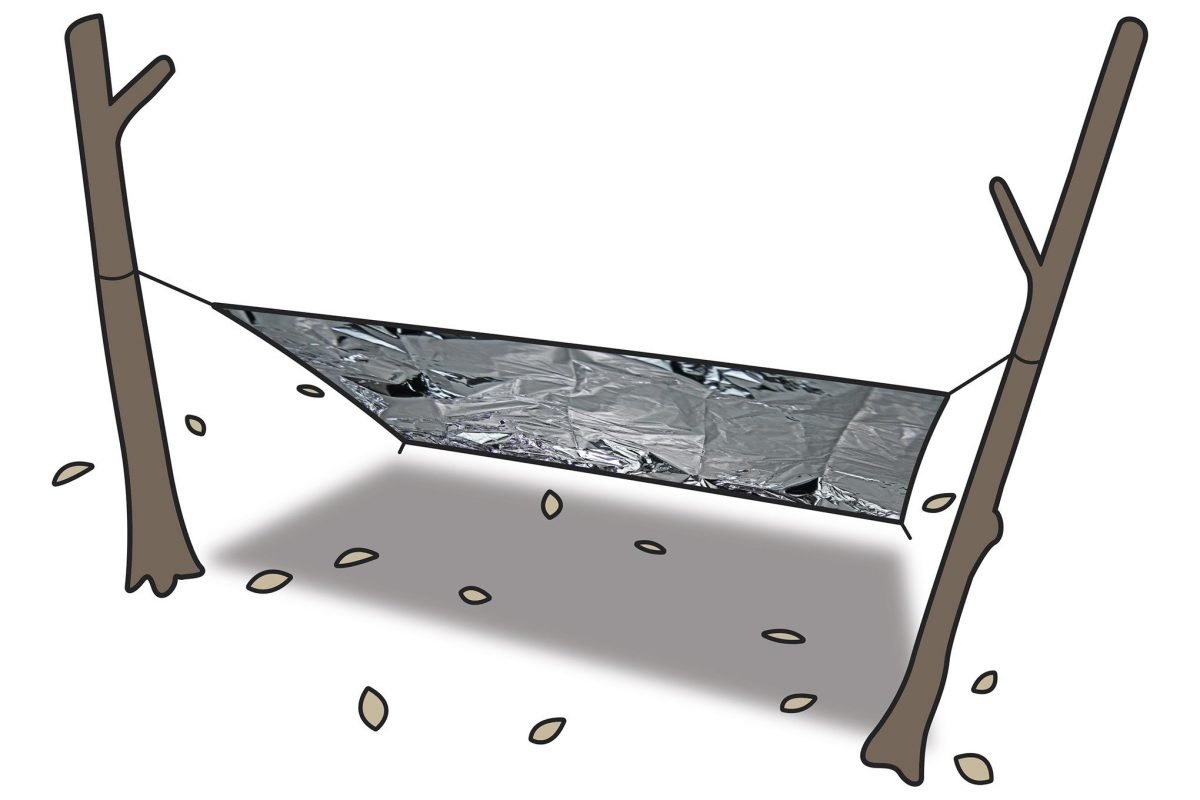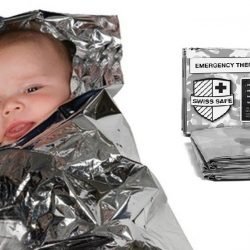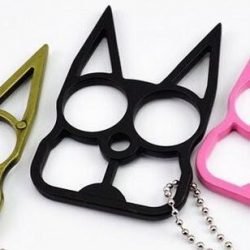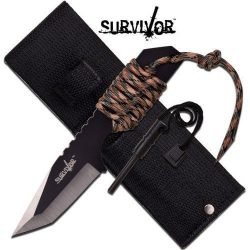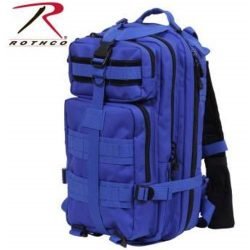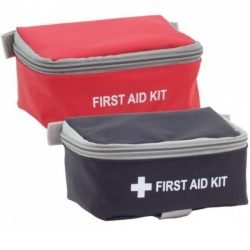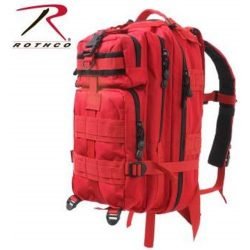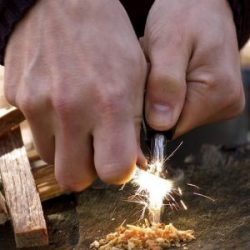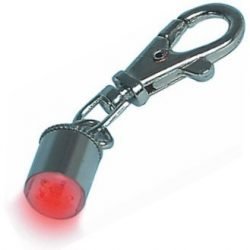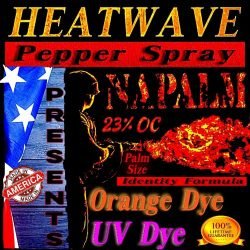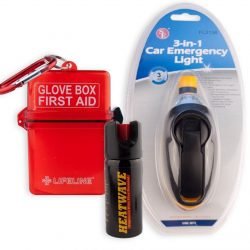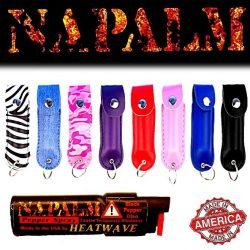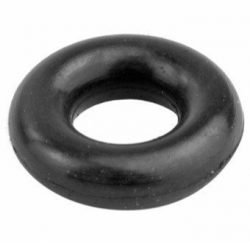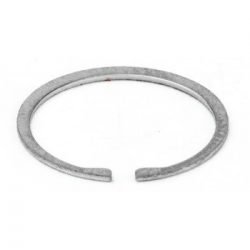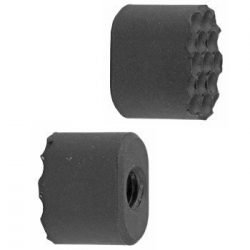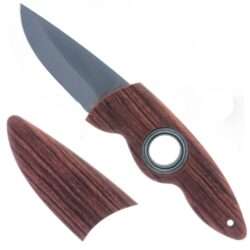The Pros
When evaluating how to best utilize any tool, I like to start with its strengths.
Cheap emergency blankets have several redeeming qualities we can work with in a survival situation:
Super Lightweight
Cheap emergency blankets weigh next to nothing.
Each individually packaged blanket is under 2 ounces so you can easily toss one in with your gear or pack and not even realize it’s there.
Super Compact
Besides being ultra-lightweight, cheap emergency blankets are incredibly compact so you can essentially take them anywhere.
Most cheap emergency blankets fold up to 2.75” x 5” and about 1/2″ thick.
They’re small enough to fit in the palm of your hand so you could literally carry one in your pocket if you needed.
Developed By NASA
If anyone knows technology, it’s NASA. They put people on the moon for God’s sake.
These are the people that developed the “space blanket” which is the technology used for cheap emergency blankets.
Well, the technology was so effective at protecting space equipment in cold temperatures they’ve gotten wide-spread use across a variety of other areas now, including survival.
Reflect Heat
Cheap Mylar blankets are great at reflecting heat.
They’re often advertised as reflecting up to 90% of your body heat, and that generally holds true.
However, as I’ll cover below, despite these great characteristics, there are several reasons these won’t serve you well as an emergency blanket in a survival situation…
The Cons
You have to take the bad with the good.
So, along with the great qualities of being lightweight, compact, and reflecting heat well…
There are a hand-full of downsides to cheap emergency blankets we need to cover to determine the best way to use them in a survival situation.
First things first:
Leak Heat
The same reason you take a sleeping bag camping is the same reason you want an emergency sleeping bag in your survival gear as opposed to relying on a cheap emergency blanket to keep you alive.
A high-quality emergency bivy is thicker than an emergency blanket plus has heat sealed seams on 3 sides locking out wind, rain, and snow.
You can try rolling up burrito-style to lock out inclement weather and cold… but you’re just not going to get comfortable and eventually, something always gets through.
Tear & Rip Easily
What comes with a low price point is often lower quality, and that tends to hold true with cheap emergency blankets.
Cheap emergency blankets are much thinner than a higher-quality blanket or emergency sleeping bag and they’re also not coated with any sort of protective material making them tear and puncture resistant.
That results in them easily tearing or getting damaged after a single use or even worse…
When you’re relying on one to save your life.
So… What Are Cheap Emergency Blankets Good For?
Now that we have the pros and cons worked out, we can narrow in on what cheap emergency blankets would be best suited for in an emergency or survival situation.
Heat Reflector In Your Shelter
If you don’t have to rely on the emergency blanket as your shelter in an emergency, one of the best uses is to combine the benefits of the cheap emergency blanket with your shelter and reflect heat.
If you’re sleeping in a bivy sack, tent, or even a bushcraft style shelter, you can use the emergency blanket to line the area above you or the back wall.
This way, the durability of the blanket becomes less of an issue but you can get the heat reflective and warming benefits of the blanket.
If you’re sleeping in a tent and have rainfly, a great way I’ve found to do this is to slide the emergency blanket between the tent and rainfly.
This not only adds another layer of waterproof protection but will also reflect your body heat and help to warm the entire tent.
Ground Sheet
In a survival situation, staying warm and dry is critical.
And if you’re left without a structural or tent shelter, you could be left sleeping in the dirt.
Well, even if you have a tarp and sleeping bag, that cheap emergency blanket you tossed in your pack will still come in handy to keep you from freezing your butt off (and provides another layer of protection from moisture).
Place your cheap emergency sleeping blanket on the ground and then put some sort of layer between you and the reflective blanket.
If you have a sleeping pad that will work great. If you need to improvise, dry dirt, pine needles, etc… will do the job.
Once your blanket is down and you have a layer between you and the blanket, the emergency blanket will serve as a ground sheet both keeping you dry and reflecting heat back up at you keeping you warm.
Signal Mirror
If you’re stranded out in the woods and need help, being able to create a signal is helpful to notify others of your location.
Well, that highly reflective cheap emergency blanket you happened to toss in your pack or survival gear can be used as a signal mirror in just a few seconds.
Start by cutting a square from one of the corners of the emergency blanket. A square that’s four to five inches on each side will do the trick.
Next, try and find something small and flat you can use to stretch your small piece of the blanket over.
You want to find something as flat as possible to create the best reflection. Things like plates, the bottom of a water bottle, or flat pieces of wood or rock work well.
If you can tape or tie it off to create a flat taught stretch it will help with the reflection and make your improvised signal easier to work with.
Once you’ve secured your piece of emergency blanket in a way that’s stretched flat, you can reflect the sun off the blanket material towards rescuers, planes, or others you’re seeking help.
Poncho
If you need protection from falling rain or snow plus some warmth, a cheap survival blanket can easily be modified into a survival poncho.
To make the most reliable version, you’ll need a pair of scissors or knife to cut the head hole and I like to use a few pieces of tape to secure the sides so they don’t blow open in the wind.
But don’t worry, this takes just a few seconds to make.Start by folding the blanket in half length-wise.
Then, cut the head hole in the center of the blanket at the fold by making a half-moon shaped cut through both sides of the blanket. This should leave you with a circular shaped piece of emergency blanket you can set aside for another use (works great for the signal mirror I mentioned above).
Next, if you have some tape handy, secure the two sides of the blanket together to keep them from blowing around, getting caught on loose bushes or branches, and help to keep the heat inside the blanket.
You need to leave room for your arms to come through so start taping 12-18 inches below the centerfold of the seam.
Add a few pieces of tape down the side of the blanket to make the sides as secure as you can.
And there you have it. Pull the improvised poncho over you and place your head through the head hole and you are both protected from falling rain or snow and have insulation from the cold since the blanket will reflect your body heat back to you.
This poncho doesn’t have a hood, but if you need head protection, you can simply pull the back of the head hole up over the top of your head and it will keep you dry.
Rain Catch
I hesitate to mention this use because of the durability concerns I spoke of, but in a pinch and if you’re careful, a cheap emergency blanket can make a great rain catch.
For this to work, you’re simply creating a channel for the rain water to flow towards a bucket or rainwater catching system.
Because of the durability of the blanket, you’ll need to be sure the channel you’re creating runs smoothly and the blanket stays tot, otherwise, it will become too heavy for the blanket and tear at the points you’ve secured it.
However, in a pinch and if you’re not in need of the blanket for warmth, this is a great way to capture water and build up your supply during an emergency or survival situation.
